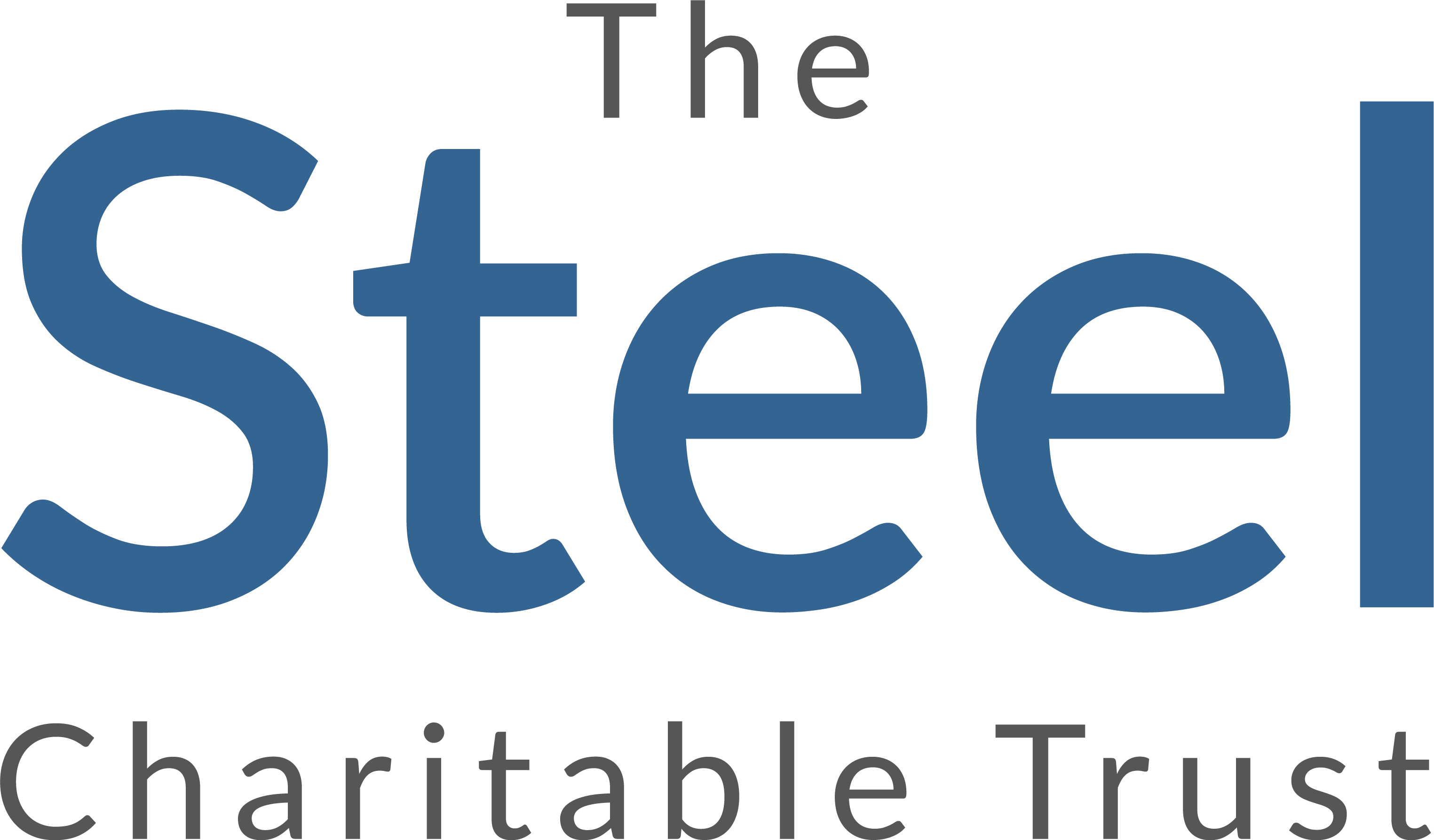Please read this page carefully – we do not want you to waste your time applying for something for which you are not eligible.
The Trustees make discretionary grants where they believe that their contribution will make a real difference. What follows is the open application grant-making policy for The Steel Charitable Trust’s rolling grants programme, from which the vast majority of grants are awarded.
Applications are taken all year round and from all areas of the United Kingdom. They are assessed four times a year – cut-off dates for each meeting are detailed on the next page.
Eligibility
1. Organisation structure
Applications will only be considered from:
- Charities, including CIOs, registered in any part of the United Kingdom
- Exempt Charities as defined in schedule 3 of the Charities Act 2011 and their equivalent in Scotland and Northern Ireland
- municipally-funded museums not included in schedule 3 of the Charities Act 2011
Your organisation may have more than one structure, i.e. be a registered charity and a company limited by guarantee. As long as it is a registered charity, it is eligible.
Applications will not be considered from:
- Individuals
- Charities registered outside the UK
- Charities that do not have one year of accounts behind them
- Community Interest Companies or other company structures of a not-for-profit nature
- Political parties
2. Organisation size
In all cases above, the applicant must have an annual turnover of over £50,000 (defined as 100% of charitable income plus proceeds from any trading income).
3. Organisation beneficiaries
Most grants are awarded to organisations whose beneficiaries are inside the UK, regardless of nationality, culture or ethnic origin. Trustees will consider applications for grants that benefit people living outside the UK but only if the charity that applies is registered in the UK.
Grant purposes, sizes and restrictions
1. Categories
Applications must be for charitable purposes that fall into one of the five core categories below; applications for purposes outside these categories are only permitted at the direct invitation of a Trustee:
- Arts and Heritage
- Education
- Environment
- Health
- Social or Economic Disadvantage
2. Priority focus areas
There are no focus areas within the categories of Arts and Heritage, Education or Environment*.
Until further notice, applications within the Health category must have a focus on one of the following:
- Programmes and activities that aim to support, maintain and improve mental health in any demographic. During this two-year period Trustees are particularly interested in assisting charities that address clinical need, rather than general well-being. However, the Trustees will consider well-being programmes aimed at groups with particular vulnerabilities, e.g., unpaid carers, people struggling with addiction.
- Health care for older people. This means people over state retirement age. Trustees are interested in supporting charities that offer older people preventative health as well as treatments. Funding for research is not included.
Until further notice, applications made within the Social or Economic Disadvantage category must have a focus on one of the following:
- Disadvantaged children. This means young people under the age of 18. For this two-year period Trustees are focused on supporting charities that help children in families suffering from challenging economic circumstances or children living in potentially dangerous home situations or looked-after children. This focus area does not include health needs.
- Housing and homeless people. Trustees are particularly interested in helping charities that get people off the streets and into stable accommodation from where they can start rebuilding their lives or moving families out of entirely unsuitable housing because of size or condition. Therefore, the focus during this two-year period is not on looking after people whilst they are on the streets.
*A note on the Environment category: from 21 April 2022, applications for the Environment category may include measures that improve the applicant organisation’s carbon footprint. However, the applicant organisation’s main business must still be connected to one of the five funding categories listed above. ‘Traditional’ environmental applications, (for example, to improve habitats, conserve species or reduce waste) remain welcome.
3. Grant size
The minimum grant size is £10,000. Awards of more than £25,000 are rare. A follow-up report, the scale of which is commensurate with the size of the grant, is expected within 10 months of payment. Details will be provided to successful applicants.
Grants are usually made as single payments. In some cases, larger grants are awarded in instalments, payable over a period of years, usually on the condition that satisfactory progress reports are submitted at regular intervals.
NOTE: Charitable organisations from, or operating in, Luton and Bedfordshire, that seek a grant of under £10,000 should check the Bedfordshire and Luton Community Foundation’s website for suitable assistance.
4. Restrictions
There are no restrictions on the type of funding for which applicants may apply, and Trustees will consider contributions towards core costs and capital works as well as specific projects.
Only two exceptions are imposed on the purpose for which a grant may be used:
- no expeditions
- no active promotion of religion
However, this does not exclude, for example, an eligible religious organisation from applying for work that is not religious in nature, such as providing a food bank or maintaining an historic building.
A list of recent grants made can be found here.
